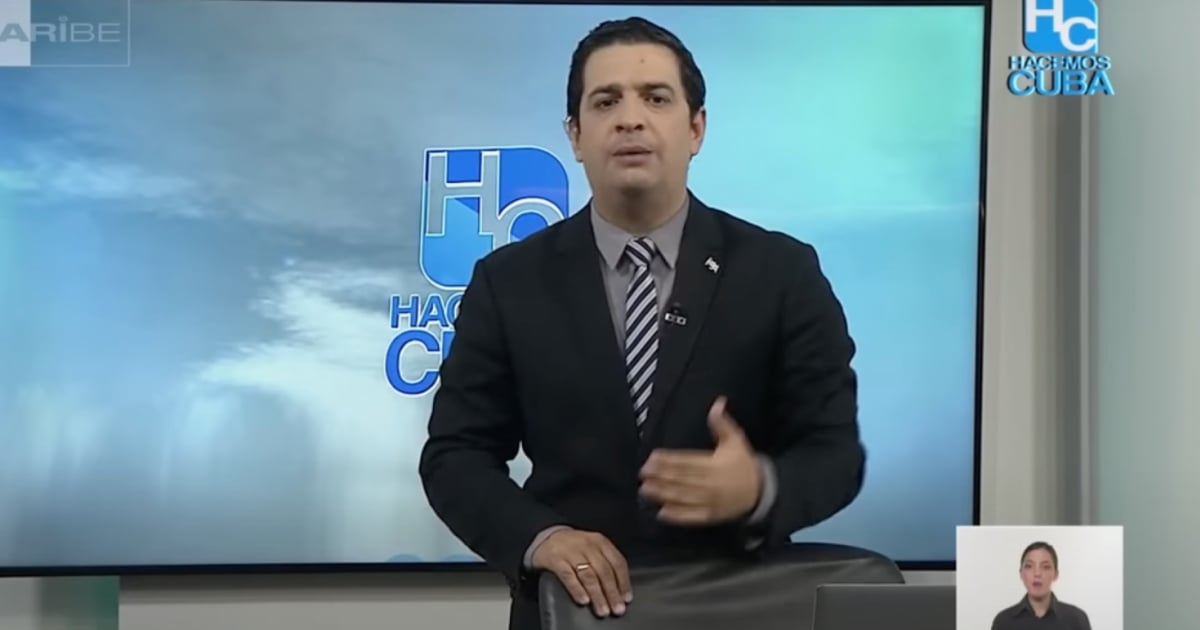Cuban state media spokesperson, Humberto López, has unveiled what is described as an anti-corruption initiative on his show "Hacemos Cuba," which aligns with the Communist Party. This campaign, framed as a crackdown on administrative corruption—a phenomenon overwhelmingly condemned by the Cuban populace—comes after 66 years of impunity, especially among the elite government circles. Oddly missing from this open campaign is any mention of former Economy Minister Alejandro Gil Fernández, who was ousted over corruption allegations in February last year. Details about his legal proceedings or the specifics of his alleged crimes remain undisclosed, despite the Communist Party's current claims of pursuing corrupt officials "without favoritism or exceptions," asserting that punishment must be uniformly applied.
This media spectacle, complete with public trials and the broadcasting of personal information of those involved, is part of the Third National Exercise in the prevention and confrontation of crime, corruption, drug trafficking, and social indiscipline. This massive operation concluded on June 28, under the oversight of the Communist Party, the Ministry of the Interior, and other state bodies.
To signal the seriousness of this effort, Humberto López invoked a speech by Fidel Castro that labeled corrupt individuals as "enemies, whether knowingly or unknowingly," and highlighted a "detailed monitoring and control mechanism" overseen by President Miguel Díaz-Canel. This entity purportedly scrutinizes legal offenses within the provincial government structures of Havana and Santiago de Cuba, as well as in the ministries of Energy and Mines, Domestic Trade, Transport, Industries, Food Industry, and Agriculture.
Channel Caribe's coverage began with an analysis of four recent corruption cases under investigation, suggesting as fact the narrative spun by Humberto López, despite the absence of any definitive judicial verdict, thereby undermining the presumption of innocence.
Pervasive Corruption Cases Unveiled
The first scandal involves the Base Business Unit 654 of the Granma Wholesale Food Products Company in Bayamo. Several executives and employees allegedly colluded to disguise the theft of stored rice, sugar, and grains earmarked for the basic food distribution to 256,000 residents of Bayamo. Their method involved filling sacks with sand to create the illusion that the products were still there, thus circumventing inspections. This case has resulted in the preventive detention of eight individuals. The profits from selling the stolen supplies on the black market were reportedly used to purchase televisions, music systems, air conditioners, and motorcycles.
Another incident involved the Solid Waste Collection Company Aurora, in the Plaza de la Revolución municipality, where several executives diverted state funds to purchase cement, chicken, and beer. In the case of the Central Havana Garbage Collection Company, the scheme involved selling the fuel allocated for garbage trucks, given that they received one liter per blue container collected. Official state media reported that they sold the fuel and neglected waste collection duties.
Lastly, 23 individuals have been detained at the Base Business Unit Suchel Regalo, where bath and laundry soaps distributed through state-run bodegas are manufactured. Among those arrested were workers caught leaving the factory with soaps concealed on their bodies. An initial audit revealed more than 2,000 soaps being illicitly removed from the factory this way. To hide the theft, they altered raw materials, allowing for the overproduction of inferior quality soaps. The Ministry of the Interior estimates that 27,000 bath soaps and 18,000 laundry soaps went unproduced due to this scheme.
Those involved in these corruption cases face charges of aggravated embezzlement, which carries penalties of up to 20 years in prison. The revelations emerged after the Comptroller General's Office received public complaints, discovered discrepancies through audits, or received information from the Ministry of the Interior, according to Dalman Dalmau Palomino, Vice-Comptroller General of the Republic.
Colonel Alexis Hernández Pumarada, head of the Territorial Criminal Investigation Unit in Havana, remarked that despite the belief in acting with impunity, "agents of the Ministry of the Interior are often aware of these activities through various means." This raises the obvious question: if they are omnipresent, why does corruption persist in state enterprises?
Understanding Cuba's Anti-Corruption Measures
What is the focus of the Cuban government's anti-corruption campaign?
The campaign aims to address administrative corruption within the government, targeting corrupt practices in various state-run sectors and promising accountability without exceptions.
Which sectors are being scrutinized for corruption in Cuba?
The initiative focuses on the provincial governments of Havana and Santiago de Cuba, and ministries such as Energy and Mines, Domestic Trade, Transport, Industries, Food Industry, and Agriculture.
What penalties do those involved in these corruption cases face?
Individuals implicated in these cases face charges of aggravated embezzlement, with potential sentences reaching up to 20 years in prison.
